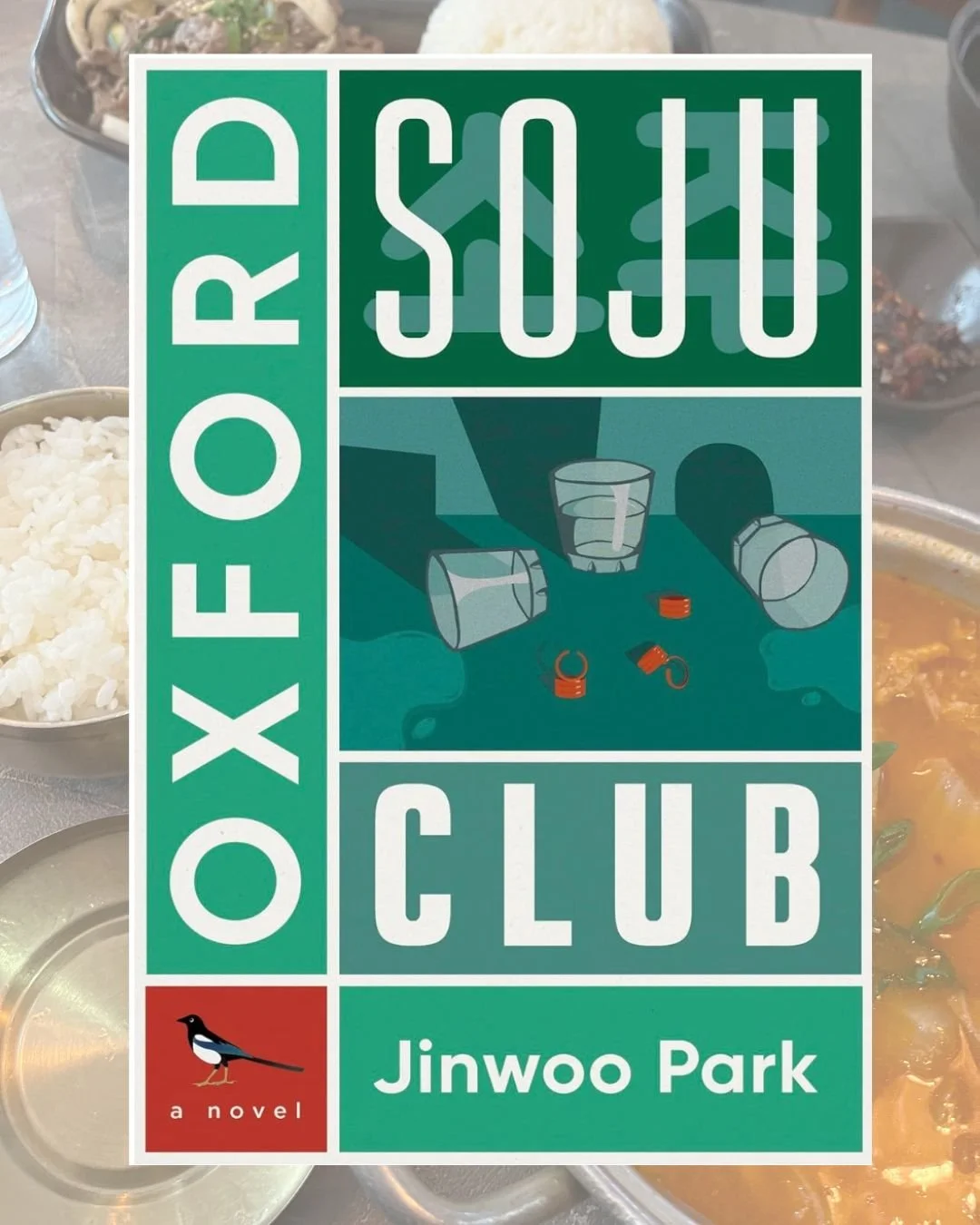Oxford Soju Club: A Spy Story Where the Real Plot Is Identity
Arc Review
At first glance, Oxford Soju Club is a tense spy story: a North Korean agent fleeing a failed mission, a Korean American CIA officer caught in the aftermath, and a South Korean restaurant owner whose quiet life becomes the accidental epicenter of it all. But Jinwoo Park's debut novel asks something deeper, not "Who wins?" or "Who dies?" but rather: Who are you when survival requires pretending to be someone else?
I went into this book intentionally blind. No reviews, no blurbs. I wanted to meet the story on its own terms. And I’m glad I did. Because what makes this book so compelling isn’t its plot (though it’s solid) or its pacing (which holds). It’s the way the author told us, from the beginning, that none of this is really about espionage.
"Each character represents the different masks I have worn as a Korean immigrant—the one who tries to assimilate, the one who tries to be the model minority, and the one who rejects all of the above and tries to be Korean."
With that in mind, I read the book through two lenses. One is the surface narrative: post-regime North Korean intelligence chaos, CIA missteps, and the sharp contrast between capitalist and communist ideologies. Yunah (the CIA officer) and Yohan (the North Korean agent) are used as pawns by systems that neither protect them nor see them. Jihoon, the restaurant owner, is caught between the past and present, home and beyond. And all of it plays out in Oxford, a city that feels both too small and too exposed for the layers of surveillance and silence within the story.
But the deeper lens is the one that stayed with me. Each of these characters is performing. They are wearing versions of themselves shaped by what they believe is expected of them: to succeed, to assimilate, to disappear, to remain loyal. And beneath all that are the quieter, more devastating questions: What do you owe your homeland? What happens when identity itself becomes the battlefield?
That’s why, even if the ending wasn’t what I wanted in a conventional sense, it felt right. If you read the novel only as a thriller, you might feel unresolved. But read it as an immigrant story, a story about masks, performance, longing, and survival, and it becomes clear that this was the only ending that made emotional sense.
What worked for me:
Thematically, the book hits its mark. Park explores the fragmentation of diasporic identity with nuance.
The multifaceted POV structure adds tension and weight to the narrative.
Jihoon's chapters stood out the most. His quiet resilience gave the novel emotional texture.
I appreciated the restraint in tone. There were big ideas here, but Park lets them breathe.
Would I recommend it? Yes. But not only for the spy plot. This book is for readers who care about how identity fractures and reforms across borders. It is for readers who can understand the nuances, the battles, and the heartache. It's for anyone who has ever had to perform their belonging. This is for those readers that will take the time and identify what mask each character represents and how they interact and relate to each other.
Thank you to River Street ( @river_street_writes ) for the ARC and the opportunity to be part of this story early.
US release date September 30th, 2025
This post contains affiliate links. If you purchase through these links, I may earn a commission at no additional cost to you.
Preorders on Amazon or Bookshop.org
Looking for your next read? My Asian Era is where literature meets culture, thoughtful reviews, quiet voices, and stories worth slowing down for.

